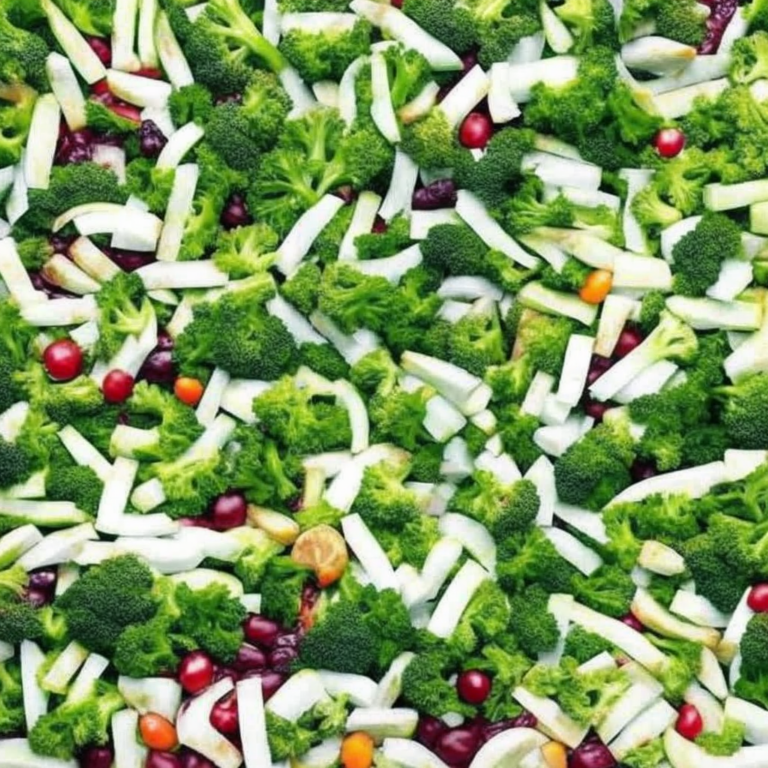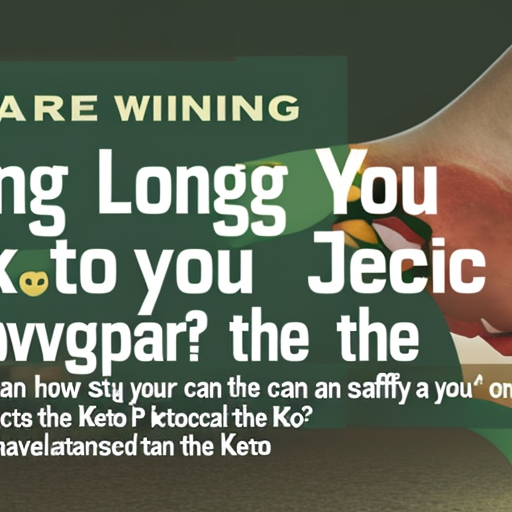Keto must-have foods
Essential Foods for a Healthy Keto Diet
The ketogenic diet is a popular eating plan that focuses on high-fat, low-carbohydrate meals. It has been used to treat various health conditions, including obesity and diabetes successfully. However, in order to reap the benefits of this lifestyle change, it’s important to choose the right foods. Here are some essential foods for a healthy keto diet.
Low Carb Fruits and Vegetables
Fruits and vegetables provide essential vitamins and minerals while helping you stay within your daily carb limits. Some of the best options include leafy greens such as spinach and kale; cruciferous veggies like broccoli, cauliflower, cabbage; low glycemic fruits such as berries; and root vegetables like sweet potatoes or squash. Eating these types of produce will ensure you get enough fiber while still keeping your carbs in check.
High Fat Dairy Products
Dairy products can be great sources of fat when following a ketogenic diet – but make sure to opt for full-fat varieties over their lower fat counterparts! Cheese, cream cheese, sour cream, heavy whipping cream (HWC), Greek yogurt all make great additions to any meal plan due to their higher fat content compared with other dairy products like milk or cottage cheese which contain more carbohydrates than fats.
Nuts & Seeds
Nuts are an excellent source of healthy fats as well as protein – making them ideal snacks when trying to follow a keto lifestyle! Almonds, walnuts macadamias are all good choices since they contain less carbohydrates than other nuts such as cashews or pistachios (which should be eaten in moderation). Additionally adding chia seeds flaxseeds pumpkin seeds sesame seeds into smoothies salads dressings sauces is also beneficial due to their omega-3 fatty acid content which helps reduce inflammation throughout the body!
Nutrient-Rich Keto Superfoods to Include in Your Diet
When following a keto diet, it’s important to ensure that you are getting all of the essential nutrients and vitamins your body needs. To do this, it is helpful to incorporate nutrient-rich superfoods into your meal plan. Here are some examples of nutritious keto superfoods:
Leafy Greens
Leafy greens like spinach, kale, arugula and Swiss chard provide an abundance of minerals and vitamins while being low in carbs. They can be enjoyed as part of salads or added to smoothies for an extra boost of nutrition.
Avocados
Avocados are a great source of healthy fats which help keep hunger at bay while providing essential vitamins such as Vitamin C and potassium. They also contain dietary fiber which helps promote digestion and regulate blood sugar levels. Enjoy them sliced on top of salads or blended into guacamole for a delicious snack option!
Nuts & Seeds
Nuts like almonds, walnuts, cashews, pistachios and pecans make for excellent sources of protein and healthy fats when following the keto diet. Additionally they offer many other beneficial nutrients such as magnesium which helps with muscle function; iron which supports red blood cell production; zinc which aids immunity; selenium which plays a role in metabolism; plus omega-3 fatty acids that reduce inflammation throughout the body! Meanwhile seeds like pumpkin seeds or sunflower seeds provide similar benefits but tend to be lower in fat content than nuts so they’re perfect if you’re looking for something lighter yet still full off goodness!
Low Carb Vegetables
Low carb vegetables like broccoli, cauliflower and Brussels sprouts can be enjoyed raw or cooked depending on preference – just watch out not to overdo it on these veggies because too much may cause digestive discomfort due their high fiber content! They contain several essential vitamins including Vitamin A (for eye health), Vitamin K (for bone health) plus Vitamin C (for immune system support). Furthermore these vegetables have been linked with improved cholesterol levels thanks to their anti-inflammatory properties!
Delicious High-Fat Options for Low Carb Eating
Nuts and Seeds as Keto Friendly Foods
Nuts and seeds are a great way to get your daily dose of healthy fats on a keto diet. They’re high in fiber, protein, vitamins, minerals, antioxidants, and omega-3 fatty acids. Almonds, walnuts, macadamia nuts, chia seeds, flaxseeds – all of these have been shown to provide health benefits when eaten in moderation on the ketogenic diet. Some of the best nuts and seeds for keto include almonds (high in magnesium), pecans (rich in zinc), sunflower seeds (high in vitamin E) and pumpkin seeds (a good source of iron).
Healthy Fats from Animal Sources
Animal sources such as grass-fed beef or pastured poultry can also be included into a healthy low carb meal plan. These animal proteins are rich sources of healthy fats like monounsaturated fat which is important for maintaining overall health while following a low carbohydrate eating pattern. Additionally they contain higher amounts of essential amino acids than plant based proteins making them an ideal choice for those looking to build muscle mass or maintain it while losing weight on the keto diet. For optimal results look out for labels that state “grass fed” or “pasture raised” when selecting meats at your local grocery store or farmers market!
Avocado – The Perfect Keto Snack
Avocados are one of nature’s most perfect snacks because they’re packed with nutrients like potassium and folate but still remain low carb friendly due to their high fat content – about 75% by calories come from fat! Plus avocados are loaded with heart-healthy monounsaturated fatty acids which help reduce inflammation throughout the body while providing energy needed during intense exercise sessions too! Try adding some diced avocado onto salads or enjoy sliced avocado with eggs for breakfast – either way you’ll be getting plenty nutritious goodness without worrying about going over your carbs limit each day!
Quick and Easy Ways to Add More Protein to Your Meal Plan
Protein is an essential part of any healthy diet, but it can be difficult to get enough on a keto diet. Fortunately, there are some easy ways to add more protein into your meal plan without compromising the low-carb aspect of the diet. Here are some quick and simple ideas for adding more protein:
Beans and Legumes
Beans and legumes are excellent sources of plant-based protein that fit perfectly into a keto lifestyle. They’re also high in fiber, which helps keep you full longer between meals. Popular options include black beans, chickpeas, lentils, edamame beans, kidney beans and lima beans. Try adding them to salads or soups for an extra boost of nutrition!
Nuts & Seeds
Nuts like almonds, walnuts and cashews are great sources of healthy fats as well as proteins – perfect for a keto diet! They’re also incredibly versatile – you can eat them raw as snacks or sprinkle them over salads or other dishes for added crunchy texture. Seeds such as pumpkin seeds and sunflower seeds are another good source of protein that fits nicely into a low carb eating plan.
Dairy Products
Dairy products like Greek yogurt, cottage cheese and ricotta cheese all contain high amounts of both fat and protein – making them ideal additions to your meal plan if you’re following the keto diet. You can enjoy these items plain or mix in with other ingredients such as nuts or fruit for extra flavor!
Eggs & Egg Whites
Eggs have long been touted as one of nature’s most perfect foods due their impressive nutritional profile – they’re packed with vitamins A&B12 , zinc , folate , selenium , choline plus 6gms per egg ! The whites alone offer 3gms per serving while still being low calorie . Whether hard boiled scrambled poached omelettes frittatas quiches etc eggs make a delicious addition when looking for fast & nutritious food choices on Keto diets .
How To Maximize the Benefits of Eating Keto-Friendly Foods
The ketogenic diet is a popular lifestyle choice for those looking to lose weight and improve their overall health. By following this low-carb, high-fat eating plan, you can achieve your health goals without sacrificing taste or nutrition. But in order to maximize the benefits of eating keto-friendly foods, it’s important to understand which foods are best for you and how to incorporate them into your meal plan.
Understand Your Macronutrients
A key component of any successful diet is understanding macronutrients – carbohydrates, proteins, and fats – and how they affect your body when consumed in different amounts. On a ketogenic diet, most people strive for 70% fat intake from sources such as olive oil, coconut oil, avocado oil or butter; 20% protein from sources like grass fed beef or wild caught fish; and 10% carbs from vegetables like spinach or broccoli. Understanding these macronutrient ratios will help ensure that you get all the essential nutrients needed while keeping within your carb limits on a keto diet.
Get Creative With Meal Planning
Meal planning can be one of the biggest challenges when starting out on a new way of eating. The good news is that there are plenty of delicious recipes online that make it easy to stay within the guidelines set by the ketogenic diet while still enjoying flavorful meals every day. For breakfast ideas try swapping traditional cereal with eggs cooked in butter with some sauteed vegetables; lunch could include grilled chicken salad topped with olive oil based dressing; dinner might consist of salmon cooked in ghee served alongside steamed cauliflower rice tossed in garlic butter sauce – just use your imagination! And don’t forget about snacks: cheese sticks paired with celery sticks makes an excellent midday snack option that’s both tasty and nutritious!
Supplementation Is Key
In addition to choosing healthy food options on a regular basis, supplementing with vitamins and minerals may also help support optimal nutrient levels during times where dietary restrictions limit what we eat (like during travel). A multivitamin specifically designed for those who follow low carbohydrate diets can provide additional assurance that essential micronutrients are being met daily so our bodies remain at peak performance levels throughout our journey towards better health! Additionally supplements such as MCT Oil powder (made from coconut) have been shown to increase energy levels quickly after ingestion making them ideal choices before workouts or strenuous activities throughout each day as well!
The ketogenic diet is a great way to promote healthy eating and lose weight. By focusing on nutrient-rich, high-fat foods that are low in carbs, you can achieve optimal health benefits while still enjoying delicious meals. Incorporating essential foods like avocado, fatty fish, and nuts into your meal plan will ensure that you get the nutrients your body needs for energy and well-being. Additionally, adding quick and easy protein sources such as eggs or Greek yogurt can help maximize the potential of the keto diet by providing an additional boost of energy throughout the day. With careful planning and mindful consumption of keto must have foods, you can be sure to stay on track with your health goals while also getting all the nutrition needed for a healthy lifestyle! Optimized content: Need tips on what to eat when following a Keto Diet? Learn about essential Keto Foods including Superfoods & High Fat Options plus how to add more Protein for maximum benefit!







